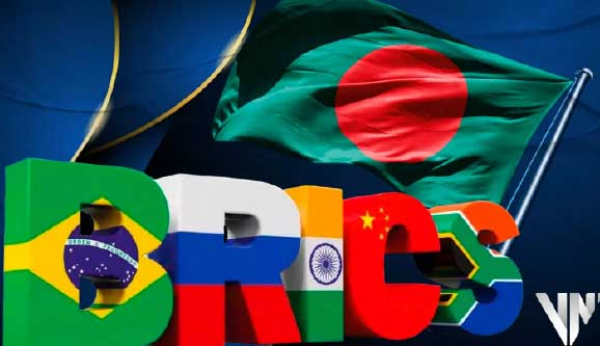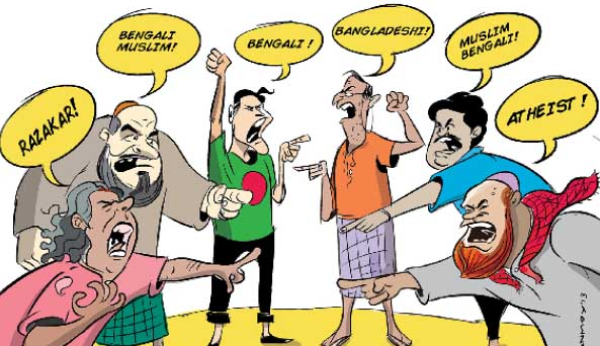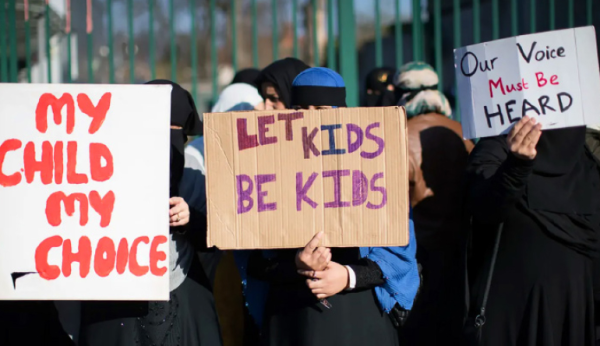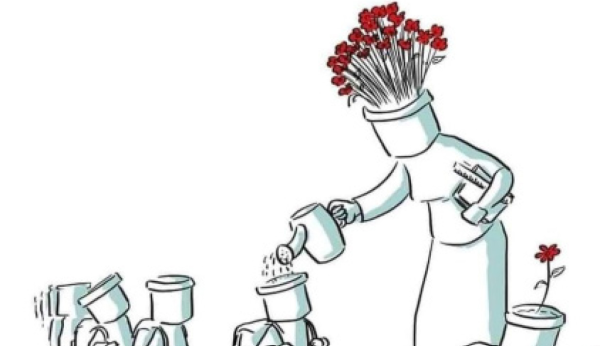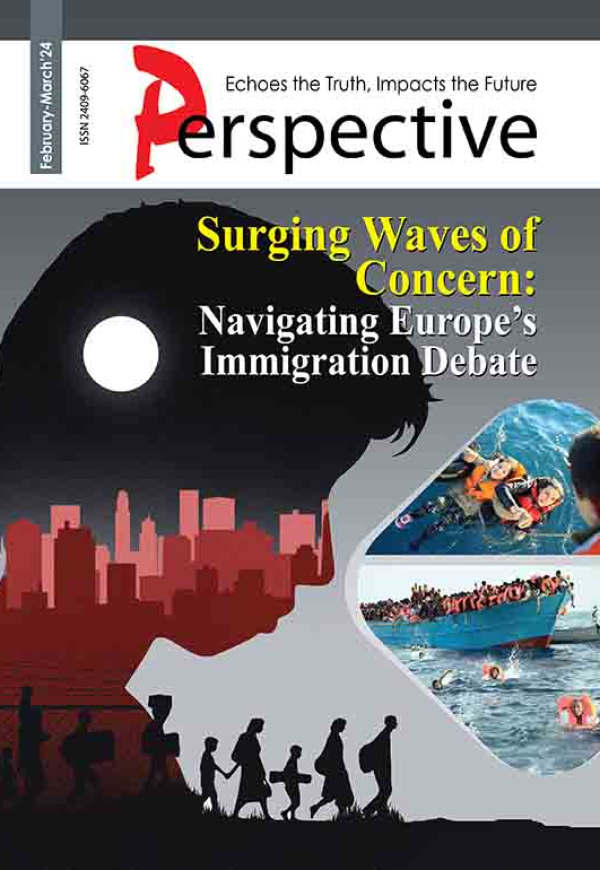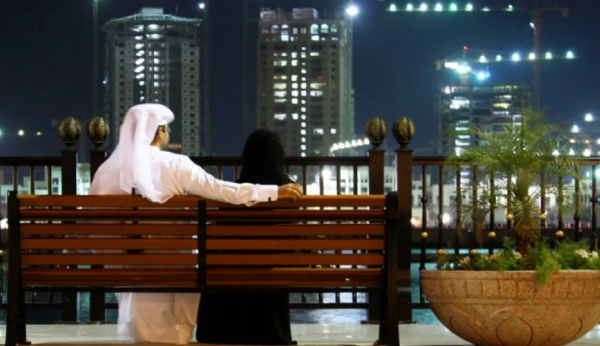Impact of Shahbag Assemblage in Framing the Current Lawless Bangladesh
Impact of Shahbag Assemblage in Framing the Current Lawless Bangladesh
Impact of Shahbag Assemblage in Framing the Current Lawless Bangladesh
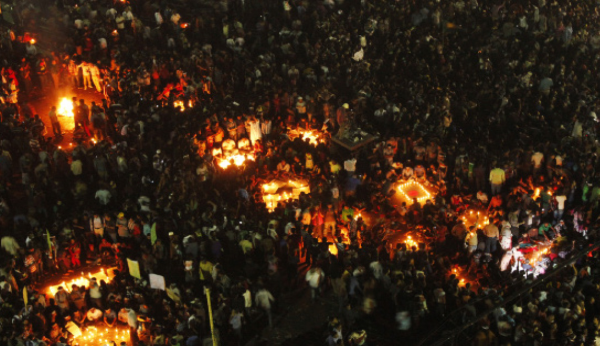
Our secular liberal friends tell us that Shahbag was wrong because of its gory calls for death. Some of them would go as far as saying Shahbag did not want to try the war criminals, it simply wanted to execute them, thereby placing Shahbag in the wrong side of history. Still others, the best of them with the most sophisticated of articulations and fanciest of Western credentials and networks, would lament Shahbag’s role in the making of the strong one-party state that Bangladesh currently is, ending Bangladesh’s brief democratic experience, and hallowing out of basic liberties and rights that Bangladeshis enjoyed in that short-lived period. They would decry how Shahbag empowered the ruling party to go defenestrate the democratic process and armed the state machineries to go after their ideological or political opponents only to later find themselves among those at the receiving end of various manifestations of state-sponsored violence. We often hear that many in the Shahbagi camp had only the best of intentions and if Bangladesh Awami League (BAL) had not captured Shahbag, Shahbag would lead us to a Bangladeshi spring. Among them, those who vocally supported Shahbag also often sincerely repent for their position in 2013, or at least they tell us so. However, in the following few paragraphs, I would try to convince you into believing that mainstream secular liberal criticisms of Shahbag as summarized above do not even come close to answering why Shahbag was wrong, an explanation that would compel them to accept that Shahbag in its entirety and with all its diversity has always been wrong. There cannot possibly be any good Shahbag at any temporal and spatial configurations imaginable.
First thing first, clamoring for death penalty was the least of Shahbag’s multiple forms of viciousness. Nor the procedural issues in which the trials were swamped are of primary importance. The most pressing issue is the framing and deployment of the term war criminals. When a Shahbagi uses the term war criminal, it no longer matters whether she is concerned about procedural fairness, opposed to the death penalty and other supposedly fancy ideals that a The Daily Star reader with a degree from the US or UK is supposed to have, because that person has ipso facto shut the door on the possibility of a trial. She has already declared the verdict; there is no room for the accused to be found not guilty. The trial has already ended with the deployment of the term war criminals. If the defendants, for any mysterious reasons, escape a guilty verdict, that is because of procedural limits or legal loopholes. They would still, for eternity, remain, at least discursively, war criminals – irrespective of the what courts of law decide. The court can only do justice by finding them what they are, i.e., war criminals. Presumption of innocence until proved otherwise – one of the cornerstones of international human rights regime emerging from the Universal Declaration of Human Rights – is thrown in the gutter with the use of the term war criminals to refer to those who stood trial in that court adjacent to Shahbag. The guilty verdict is already out there. They can only be pardoned or sentenced, but they can never unbecome war criminals.
The intra-Shahbagi debate over execution, at the one end of the spectrum, and trial, at the other end of that spectrum, deflects us from the issue of how framing the accused as war criminals shapes our attitudes to them and limits the morally legitimate reactions to judgments passed by the court. For example, a journalist popular with “good” Shahbagis was quoted as saying in an Al-Jazeera piece that Daily Sangram called Abdul Quader Molla a martyr not because his execution was the result of a deeply flawed trial but because of the daily’s ideological position. “Even if he had been found guilty in a fair trial, Sangram would have done the same. As a newspaper subjected to laws and realities of this land, [it] cannot simply term ‘martyr’ a person who was convicted of war crimes by the highest court of the land,” said the said good secular journalist. But a careful reading of the statement betrays the hidden assumption that the Molla being found not guilty is beyond the horizon of possibility. It is presumed that even a fair trial would also ultimately result in Molla’s conviction, and that Molla’s supporters are married to Molla’s martyrdom beyond the facts about Mollah’s role in 1971, which is that of a war criminal anyway. This explains why an AC Nielsen survey found two-third of the respondents finding the trial at least unfair but a whopping eighty six percent of the same participants cheering on the verdicts. Why care about procedural (ir)regularities when we a priori know for a fact that the accused are war criminals, right? Why should we concern ourselves with the fairness of the procedure when the outcome should be a guilty verdict anyway? Free and fair trials deem necessary at best to cement the “war criminals’” reputation as such so that they cannot play victim in the future. In other words, procedural fairness is reduced to a strategic concern that does not impact the normative guilty verdict.
The second crime of Shahbag and those belonging to that social group without necessarily being physically present in that mob, supporting the death chants, or even discarding the importance of procedural fairness is the construction of the war criminal identity that undergirds Shahbag’s first crime. Not only Shahbag did declare the guilt of the accused even before the trials had begun, but it also set limits on who could or could not be categorized as war criminals. Like all cases of socially constructed identities, the war criminal identity in Bangladesh had little to do with what national or international definitions of the term contain. Instead, in Shahbagi discourse, a war criminal is someone who opposed Bangladesh’s independence, supported or fought for Pakistan, motivated by a “politically instrumentalized” version of Islam, and probably killed and/or raped some people in the process. Hence, we see “Islamically inspired” leaders of Jamaat-e-Islami (JI) and Bangladesh Nationalist Party (BNP) on trial. When we engage in the intra-Shahbagi debate over trial and execution of those who Shahbag has already declared as war criminals, we have already strayed far from the more fundamental conversation about our understanding of the war criminal category. Shahbagi discourse on war criminals would have us believe that war crime is a (pro-) Pakistani monopoly. Those considered Bengali are so innocent and naïve that they cannot possibly commit any war crime. Hence, war criminals have beard and wear skull caps – both expressions of Muslimness that are then married to Pakistaniness – and those fighting for justice wear red-and-green t-shirts and jeans. The ideology responsible for war crime is therefore Islamism or political Islam, but never secularism or secular Bengali nationalism. Killing a “freedom fighter” is war crime, but killing a Bihari is just being pro-justice.
This peculiar construction of the war criminal identity in Bangladesh through films, drama, novels, poems, songs, academic publications, and political slogans and speeches obstructed any genuine attempt at justice and reconciliation. If anything, it foreclosed the possibility of justice by producing a notion of justice in which the people Shahbag despises are rendered (pro-) war criminals even if definitions of the term external Shahbagi discourse consider them victims of war crime. For example, widely quoted Shahbagi professor Muntassir Mamoon boasts in his Al Badr 1971 how “freedom fighters” skinned alive members of Al Badr militia following the war without it ever occurring to him that those “freedom fighters” were committing a war crime. No official with the Bangladeshi army was ever produced before a court of law for (allegedly) overseeing the genocide of Biharis and mass-rape of their women, although Anthony Mascarenhas’ book says that is exactly what happened. When Muhammed Zafar Iqbal and Humayun Ahmed’s maternal grandfather, a civilian with the Peace Committee, was killed by “freedom fighters,” the incident cannot register in contemporary Bangladeshi psyche as a war crime. Nor is the cold-blooded murder of former East Pakistan governor Abdul Monem Khan, also a civilian, is categorized as war crime. How can a Bengali commit a war crime and a Pakistani be a victim of that crime, right? Although a UN approved definition of war crimes may unequivocally state that incidents such as these fall well within the category of war crimes, in Shahbag’s Bangladesh, Abdul Monem’s killer is a national hero – certainly not a war criminal. Bangladesh bestowed upon one Mozammel Hoque, Abdul Monem Khan’s killer, the country’s third highest gallantry award, Bir Pratik, for his courageous act of war crime, or as they would say, patriotism.
Consider the demand to ban Islamism as a political ideology or throw Jamaat out of the democratic process, resulting in Bangladesh’s authoritarian turn. Untangling the constructed-ness of the war criminal identity in Bangladesh shows Islamism cannot be held responsible as the ideology of war criminals, and secularism is no pro-justice ideology either. JI and BNP, as political parties, can also no longer be singled out for producing and harboring war criminals. Moreover, the Shahbagi attempt to try those who (are believed to have) supported Pakistan, and never those who sided with Bangladesh cannot also be sustained. Good Shahbagis may lament Bangladesh’s authoritarian turn, but have they ever questioned the ridiculousness of the war criminal identity that they constructed?
Shahbag extinguished any opportunity of coming to terms with what transpired in 1971. Individuals, groups, and even ideas that are believed to have sided with the wrong side, i.e,, Pakistan, have their villain status permanently secured thanks to Shahbag. Shahbaghi author Naeem Mohaiemen, in response to Sharmila Bose’s Dead Reckoning, tells us that we need not pay too much attention to the pain inflicted on Biharis because, well, “their” sufferings pale in comparison to “ours” and “we” were butchered by a state-sponsored force and “they” were sparsely harmed by unorganized angry mobs. Leaving aside the problematic assertation that Mukti Bahini, India-backed forces, and BAL as a party with secular Bengali nationalism as its ideology, constituted unorganized angry mobs, we can applaud the fact that Shahbagis at least recognize that Biharis were harmed, albeit not to the extent to merit war crimes trials. But it still remains unimaginable in present-day Bangladesh that not only Biharis, but pro-Pakistani Bengali civilians, militia, and Pakistani soldiers can also be victims of war crimes. And when Shahbaghis fail to question the constructed-ness of the categories they employ, the claim that “they” were lesser victims holds no water for we cannot know whose sufferings weigh more without first categorizing “their” sufferings as sufferings. “Anti-Bangladeshi” peoples and ideologies can never be victim since Shahbag did not accord them any right in the first place.
The most honest account of Shahbag was revealed to me in a recent private conversation. A Shahbagi intellectual with a BUET degree told me that had Pakistan remained united, Tajuddin would receive the same treatment that Ghulam Azam did in Bangladesh. And I agree with him. In neither of its manifestations was Shahbag about justice. It was always about annihilation of its opposition – exactly what they accuse West Pakistani establishment of attempting. Even when (a part of) Shahbag moderated its demands, by taking into account the importance of procedural fairness and electoral democracy, for instance, it was within the milieu of that zeal to defeat its Other (because otherwise the optics is bad), not out of any commitment to justice external to Shahbagi discourse. There can never be a mili-second in which Shahbag is right, unless you are a Shahbagi, in which case Shahbag is always right, as it is Shahbag that determines what is right, and what is not, and, therefore, Shahbag can never be wrong.
Md Ashraf Aziz Ishrak Fahim has a first degree in International Relations and Global Affairs from Mahidol University, Thailand. He is studying Social and Political Thought at the University of Leeds, UK. He can be reached at [email protected]
 Md Ashraf Aziz Ishrak Fahim
Md Ashraf Aziz Ishrak Fahim 
